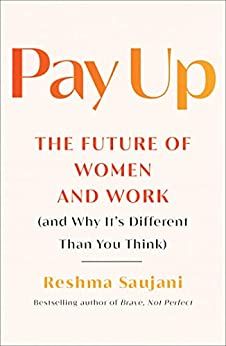

Celebrity news, beauty, fashion advice, and fascinating features, delivered straight to your inbox!
Thank you for signing up to . You will receive a verification email shortly.
There was a problem. Please refresh the page and try again.
Reshma Saujani is known for many things. There’s her groundbreaking nonprofit Girls Who Code, her three bestselling books, and her new nonprofit, The Marshall Plan For Moms. Plus, she ran for office twice. She’s always pivoting for the sake of women’s rights. But behind the scenes of her dynamic career, Saujani struggled personally with starting the family she so desperately wanted.
Like so many women, Saujani suffered in silence as she tried to get pregnant and carry to term. “There's so much shame and silence around it,” Saujani said. “I thought that was just the price of motherhood, of wanting to be a mom, of wanting to be a boss.”
Her struggles with fertility started when she ran for Congress in 2010, on the heels of President Obama’s historic election. She was 33 and ready to take on the Democratic establishment. Saujani had great credentials: the daughter of refugees, a graduate of Yale Law, and the first Indian-American woman to run for Congress. Still, many discouraged her run for office.
“I was constantly told, ‘It's not your turn. Wait in line. It's not your turn.’ And here I was, this brown girl, who is supposed to represent everything that we were talking about doing in this country, and I was constantly silenced,” said Saujani, “I had all of these women who I admired who were just not happy about it. I remember I went up to Gloria Steinem and she's like, ‘Why are you doing that?”
But Saujani was driven. So when she learned she was pregnant while running for Congress in 2010, she felt it was the culmination of her two dreams: running for office and being a mother.
I bought into this thing that we even had a shot at equality ... [It’s] what I call the big lie of corporate feminism, and I had been selling it
Reshma Saujani
Then she had her first miscarriage—the first of many. And after a grueling race for Public Advocate for New York City 2013, Saujani declined a senior position in the New York City Mayor’s office and quit politics. But instead of abandoning her dreams of making a difference, she shifted her focus to building Girls Who Code. Eventually, the nonprofit became one of the largest pipelines for women in STEM. Since starting in 2012, the organization has taught hundreds of thousands of girls how to code and aimed to close the gender gap in technology.
As Girls Who Code grew, Saujani’s fertility struggles continued. Fueled by what she calls “the big lie,” she conflated success with “doing it all.”
“I'd have a miscarriage and then I'd be on stage introducing Obama, smile, smile, smile. I would have another miscarriage, and then I would be there in Utah with 600 girls, smile, smile, smile,” Saujani said. “And so, I don't think that my closest friends, even my team, never really knew my private hell that was happening behind the scenes.”
With her new book, Pay Up, Saujani is challenging the unequal expectations of women and moms, both in the workplace and at home. Like many women, Saujani was crushed by the pandemic and thought if she just worked harder and pushed past her struggles with pregnancy, then she could have it all. Although she no longer runs Girls Who Code, her new movement, the Marshall Plan for Moms, is a direct solution to the inequities women experience at home and at work. Saujani, now a mother of two, lays out a blueprint for how to make “the workplace work for moms” in her book.
“I bought into this thing that we even had a shot at equality,” Saujani shared. “If we just got a mentor, if we just color-coded our calendar, if we just raised our hands more without thinking about what we wanted to say, if we were just braver. [It’s] what I call the big lie of corporate feminism, and I had been selling it. Like, I had been selling it, dishing it out.”
In this episode of “She Pivots,” Saujani discusses how each pivot of her career—and her new outlook on the future of workplace equality—has empowered her to advocate for herself, as well as girls and women across the country.
Emily Tisch Sussman sits down with women weekly on She Pivots to learn about how their personal journeys led to their pivot. Listen to the full conversation on She Pivots, wherever you get your podcasts. Subscribe, leave us a rating and follow us at @ShePivotsThePodcast!
Emily Tisch Sussman is the Founder and Host of “She Pivots,” the podcast in partnership with Marie Claire about women, their stories, and how their pivot became their success. She is a contributing editor to Maire Claire and the guest host of the Marie Claire Instagram Live series “Getting Down to Business.”
-
 The Queen Has Eaten This Food Every Day for the Past 91 Years
The Queen Has Eaten This Food Every Day for the Past 91 YearsNow that’s commitment!
By Rachel Burchfield
-
 Kate Middleton Altered Her Engagement Ring to “Avoid Her Worst Nightmare”
Kate Middleton Altered Her Engagement Ring to “Avoid Her Worst Nightmare”The ring was actually originally supposed to have been worn not by Prince William’s wife, but by Prince Harry’s (!).
By Rachel Burchfield
-
 Princess Diana Saw a Much Different Future for the Relationship Between Brothers Prince William and Prince Harry
Princess Diana Saw a Much Different Future for the Relationship Between Brothers Prince William and Prince HarryHow would she react to their feud if she were alive today?
By Rachel Burchfield




